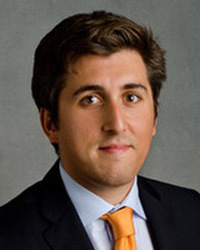Webinar Series
Digital Payments and Consumption: Evidence from the 2016 Demonetization in India
2021
Session Chair: Zhiguo HE
Fuji Bank and Heller Professor of Finance and Jeuck Faculty Fellow, Booth School of Business, University of Chicago and Senior Fellow, ABFER
Sumit AGARWAL, Low Tuck Kwong Distinguished Professor, NUS Business School and Professor of Finance, Economics and Real Estate, National University of Singapore
Co-authors:
Pulak GHOSH, Professor in the Decision Sciences Area, Indian Institute of Management Bangalore
Jing LI, Assistant Professor of Economics, Singapore Management University
Tianyue RUAN, Assistant Professor of Finance, NUS Business School, National University of Singapore
Filippo MEZZANOTTI, Associate Professor of Finance, Kellogg School of Management, Northwestern University
Speakers
-

Sumit AGARWAL
Low Tuck Kwong Distinguished Professor, NUS Business School and Professor of Finance, Economics and Real Estate, National University of Singapore and Senior Fellow, ABFER
Sumit Agarwal is the Low Tuck Kwong Professor at the School of Business and Professor in the departments of Economics, Finance and Real Estate at the National University of Singapore. Previously, he held positions as a Professor of Finance at Georgetown University, senior financial economist in the research department at the Federal Reserve Bank of Chicago and a senior vice president and credit risk management executive in the Small Business Risk Solutions Group of Bank of America.
Dr. Agarwal's research interests include issues relating to financial institutions, household finance, behavioral finance, international finance, real estate markets, urban economics and capital markets. He has published over eighty research articles in journals like the American Economic Review, Quarterly Journal of Economics, Journal of Political Economy, Journal of Finance, Journal of Financial Economics, Review of Financial Studies, Management Science, Journal of Financial Intermediation, Journal of Money, Credit, and Banking among others. Additionally, he has co-written a book titled Kiasunomics and co-edited a collected volume on Household Credit Usage: Personal Debt and Mortgages.
He is the co-editor of Real Estate Economics and an association editor at Management Science and Journal of Financial Services Research. He writes regular op-ed’s in the Straits Times and Forbes and is featured on various media outlets like the BBC, CNBC, and Fox on issues relating to finance, banking, and real estate markets. Sumit’s research is widely cited in leading newspapers and magazines like the Wall Street Journal, The New York Times, The Economist, and the U.S Presidents Report to Congress. He also runs a blog on household financial decision making called Smart Finance.
Dr. Agarwal has won various prestigious awards like the Distinguished Alumni Achievement Award at the University of Wisconsin – Milwaukee, Outstanding Researcher Award at the National University of Singapore, the Paul Samuelson TIAA-CREF certificate of excellence, the Terker Family Prizes in Investment Research Award from the Wharton School of Business, the Glucksman Institute Research Award from New York University and grants from the Russell Sage Foundation and the NBER/Sloan Foundation.
Dr. Agarwal has been invited to present his research at many renowned universities such Columbia University, Northwestern University, University of California Berkeley, Johns Hopkins, Wisconsin, Minnesota, Maryland, as well as institutions and central banks namely the IMF, World Bank, European Central Bank, European Union, Dutch Central Bank, Riksbank, OCC, and the Federal Reserve Banks of Chicago, San Francisco, Atlanta, Boston, New York, and Philadelphia. He has consulted with the World Bank, Federal Deposit Insurance Corporation, OCC, the Reserve Bank of India and Bank of America. -

Filippo MEZZANOTTI
Associate Professor of Finance, Kellogg School of Management, Northwestern University
Filippo Mezzanotti is an Associate Professor of Finance. His research interests are in empirical corporate finance, banking and entrepreneurship. His current projects cover a variety of topics regarding how financial frictions affect real economic activity as well as the importance of patent policy for corporate innovation. In analyzing these issues, he exploits evidence from both contemporaneous and historical events.
Filippo joined the Finance Department at Northwestern's Kellogg School of Management in August 2016 as a Donald P. Jacobs Scholar. Filippo grew up in Italy and he received a B.A. and a M.Sc. in Economics from Bocconi University. After moving to the US, he obtained a MA and Ph.D. in Business Economics from Harvard University. -

Zhiguo HE
Fuji Bank and Heller Professor of Finance and Jeuck Faculty Fellow, Booth School of Business, University of Chicago and Senior Fellow, ABFER
Zhiguo He is interested in the implications of agency frictions and debt maturities in financial markets and macroeconomics with a special focus on contract theory and banking. His recent research focuses on the role of financial institutions in the 2007/08 global financial crisis. He teaches an elective MBA course, “Chinese Economy and Financial Markets,” and is conducting academic research on Chinese financial markets including the stock market, local government debt, shadow banking, and interbank markets together with recent regulation changes. Professor He has also been writing academic articles on new progress in the area of cryptocurrency and blockchains.
His research has been published in leading academic journals including the American Economic Review, Econometrica, the Review of Economic Studies, the Journal of Finance, the Review of Financial Studies, the Journal of Financial Economics, and Management Science. He has been an associate editor for the Review of Financial Studies and Management Science and currently serves as an associate editor for the Journal of Finance. He serves as the guest editor of the Review of Finance for the “Special Issue on China” in 2020-2021.
Professor He received his bachelor and master degrees from the School of Economics and Management at Tsinghua University before receiving his PhD from the Kellogg School of Management at Northwestern University in 2008. He has been named a 2014 Alfred P. Sloan Research Fellow, and has won numerous awards for his outstanding scholastic record, including the Lehman Brothers Fellowship for Research Excellence in Finance in 2007, the Swiss Finance Institute Outstanding Paper Award in 2012, the Smith-Breeden First Prize in 2012, and the Brattle Group First Prize in 2014. Before joining the Chicago Booth faculty in 2008, he worked as a stock analyst at the China International Capital Corporation in Beijing in 2001 and visited the Bendheim Center for Finance at Princeton University as a post-doctoral fellow.
In Autumn 2015 Professor He was the Dean’s distinguished visiting scholar at Stanford University, Graduate School of Business, and in winter 2020 he is a visiting professor of finance at Yale University, School of Management. In January 2020, he testified at U.S.-China Economic and Security Review Commission (USCC) Hearing on “China’s Quest for Capital: Motivations, Methods, and Implications.”
- 1
Session Format
Each session lasts for 1 hour 10 minutes (25 minutes for the author, 25 minutes for the discussant and 20 minutes for participants' Q&A). Sessions will be recorded and posted on ABFER's web, except in cases where speakers or discussants request us not to.
Registration
Registration has closed. Please visit webinar main page for details on next webinar.

